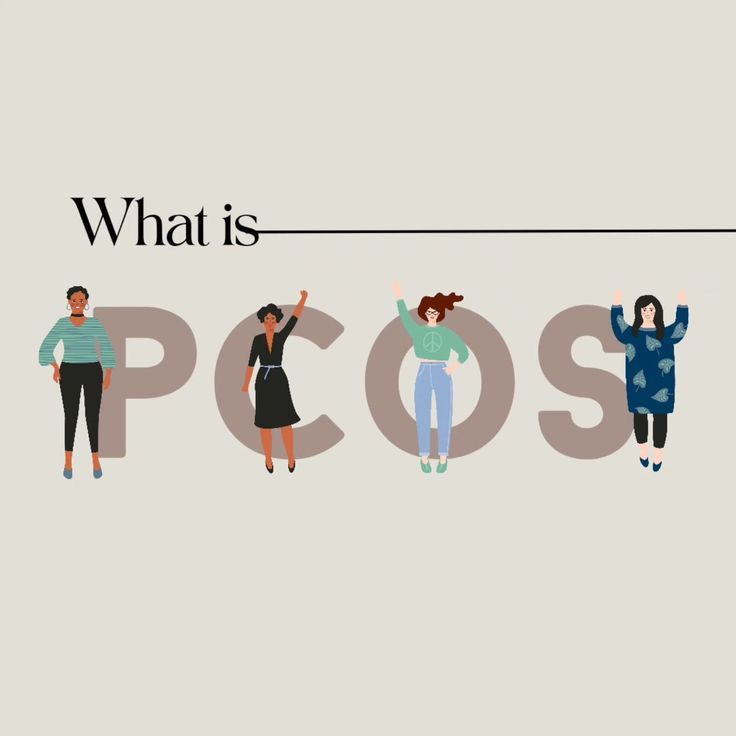Polycystic Ovary Syndrome (PCOS): A Comprehensive Guide for Individuals and Healthcare Providers

Introduction
Polycystic Ovary Syndrome (PCOS) is one of the most common endocrine disorders affecting individuals of reproductive age, yet it remains widely misunderstood. PCOS is more than just a reproductive condition. It affects metabolism, cardiovascular health, and overall well-being. This guide aims to provide an in-depth understanding of PCOS, its causes, symptoms, diagnostic approaches, management strategies, and how healthcare providers can better support patients dealing with the condition.
If you or someone you know is struggling with PCOS and needs expert guidance, reach out to us at tgncinitiative@gmail.com for personalized support.
Understanding PCOS: What It Is and Why It Happens
PCOS is a hormonal disorder that affects multiple systems in the body. It is characterized by:
✅ Irregular or absent menstrual cycles (anovulation)
✅ Excess androgen levels (leading to symptoms like acne, excessive hair growth, and hair thinning)
✅ Polycystic ovaries (enlarged ovaries with multiple fluid-filled sacs seen on ultrasound, though not always present)
What Causes PCOS?
While the exact cause of PCOS remains unclear, several factors contribute to its development:
🔹 Insulin Resistance: Up to 70% of individuals with PCOS have insulin resistance, which means the body's cells do not respond well to insulin, leading to high blood sugar levels and increased fat storage. This can contribute to weight gain, type 2 diabetes, and hormonal imbalances.
🔹 Hormonal Imbalances: Elevated levels of androgens (male hormones) such as testosterone disrupt normal ovarian function, preventing ovulation and leading to cyst formation.
🔹 Chronic Low-Grade Inflammation: Many individuals with PCOS have increased levels of inflammatory markers, which can exacerbate insulin resistance and metabolic issues.
🔹 Genetics: PCOS tends to run in families, suggesting a genetic component.
Signs and Symptoms of PCOS
PCOS symptoms can vary widely among individuals. Some may experience severe symptoms, while others have mild manifestations.
Common Symptoms
🔸 Irregular or Missing Periods: Due to disrupted ovulation, menstrual cycles may be unpredictable.
🔸 Excessive Hair Growth (Hirsutism): Thick, coarse hair growth on the face, chest, and back due to elevated androgens.
🔸 Acne and Oily Skin: Hormonal imbalances can cause persistent acne, especially on the jawline and chin.
🔸 Scalp Hair Thinning (Androgenic Alopecia): Excess androgens can cause hair loss similar to male pattern baldness.
🔸 Unexplained Weight Gain: Difficulty losing weight due to insulin resistance.
🔸 Darkened Skin Patches (Acanthosis Nigricans): Dark, velvety patches in skin folds, often on the neck, armpits, and groin, linked to insulin resistance.
🔸 Polycystic Ovaries: Not all individuals with PCOS have cysts, but those who do have enlarged ovaries with multiple small follicles.
How is PCOS Diagnosed?
There is no single test for PCOS. Diagnosis is based on the Rotterdam Criteria, meaning an individual must have at least two of the following three features:
1️⃣ Irregular or absent menstrual cycles
2️⃣ High androgen levels (either through blood tests or symptoms like hirsutism and acne)
3️⃣ Polycystic ovaries detected via ultrasound
📌 Additional Tests
- Blood tests to check hormone levels (testosterone, DHEAS, LH, FSH, prolactin, thyroid hormones, and insulin levels)
- Glucose tolerance test and lipid profile to assess metabolic health
Complications and Long-Term Health Risks of PCOS
If left untreated, PCOS can increase the risk of serious health conditions:
⚠️ Infertility – Due to lack of ovulation
⚠️ Type 2 Diabetes – Insulin resistance significantly raises diabetes risk
⚠️ Cardiovascular Disease – Increased risk of high blood pressure and heart disease
⚠️ Endometrial Cancer – Irregular cycles can cause abnormal thickening of the uterine lining
⚠️ Mental Health Issues – Increased risk of anxiety and depression due to hormonal imbalances and self-esteem struggles
Managing PCOS: A Holistic Approach
1️⃣ Nutrition and Lifestyle Modifications
Diet plays a crucial role in managing PCOS. A well-balanced diet can help regulate blood sugar levels, reduce inflammation, and balance hormones.
✅ What to Eat:
✔️ Whole, unprocessed foods
✔️ High-fiber foods (vegetables, legumes, whole grains) to slow glucose absorption
✔️ Lean proteins (fish, chicken, tofu, beans) to regulate blood sugar
✔️ Healthy fats (avocados, olive oil, nuts, seeds) to support hormone production
✔️ Anti-inflammatory foods (berries, turmeric, green tea)
❌ What to Limit:
❌ Sugary foods and refined carbs (white bread, pastries, soda)
❌ Processed foods with trans fats
❌ Dairy and high glycemic index foods (may worsen symptoms in some)
❌ Excessive caffeine and alcohol
2️⃣ Exercise and Movement
💪 Strength training improves insulin sensitivity and helps with weight management.
🏃♀️ Cardio exercises like walking, swimming, and cycling improve heart health.
🧘♀️ Yoga and mindfulness help reduce stress and lower cortisol levels.
3️⃣ Medical Treatments
Depending on symptoms and goals, healthcare providers may recommend:
- Birth control pills to regulate periods and lower androgens
- Metformin to improve insulin sensitivity
- Spironolactone to reduce excess hair growth and acne
4️⃣ Mental Health and Emotional Well-Being
PCOS can be emotionally challenging, leading to anxiety, depression, and body image issues. Seeking support from healthcare providers, therapists, or PCOS support groups can be life-changing.
How Healthcare Providers Can Better Support Patients with PCOS
✅ Take a personalized approach—each PCOS case is different.
✅ Address both reproductive and metabolic concerns, not just fertility issues.
✅ Focus on lifestyle interventions, not just medication.
✅ Screen for mental health concerns—patients may struggle with anxiety and depression.
✅ Educate patients on long-term risks and preventive strategies.
Final Thoughts: You’re Not Alone in This Journey
PCOS is a complex but manageable condition. By adopting a holistic approach—balancing nutrition, exercise, stress management, and medical interventions—you can take control of your health.
📩 Need expert guidance on managing PCOS?
Email us at tgncinitiative@gmail.com for personalized support and evidence-based strategies to help you on your journey.
💙 You deserve a healthcare approach that truly understands PCOS. Let’s work together to make that happen!

